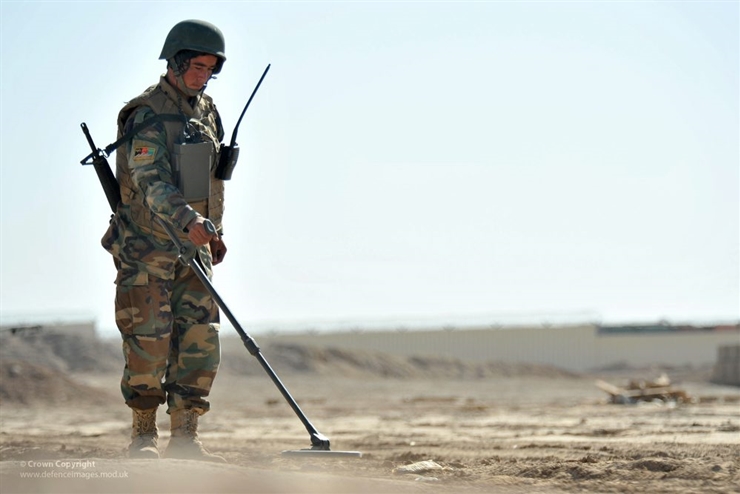As of Thursday morning, August 12 the Taliban were in control of eleven provincial capitals in Afghanistan, including the important northeastern city of Kunduz, following a sweep across the north of the country in recent days. The insurgents encountered minimal resistance from the Afghan National Army.
The insurgents now have their sights on Mazar-i-Sharif, the largest city in the mostly Tajik- and Uzbek-populated northern region which has been notably unsupportive of the Taliban in the past. On this front the jihadist force has a solid chance of extending its sweep to the Pashtun-inhabited Kandahar, Nimruz, and Helmand provinces in the south, which have been staunch Taliban strongholds for decades.
The noose around Kabul may tighten even before the last U.S. troops leave in less than a month, with its eventual fall a matter of weeks rather than months. The U.S. has sent its special envoy, Zalmay Khalilzad, to the Qatar capital of Doha. His mission, according to the Department of State, is to stop the Taliban military offensive and form an international response to put an end to the violence.
The Biden Administration has vowed to isolate the Taliban if they take power by force, which won’t impress the insurgents, but sends a signal to the remaining government loyalists that Washington is effectively reconciled to such outcome. Pentagon Press Secretary John Kirby confirmed this, saying that the U.S. would support Afghan forces until the end of August before shifting to “financial and logistical maintenance support from outside the country.” Kirby declared the Afghans were responsible for defending their own country and forces.
It is tempting to compare Khalilzad’s brief with that of Henry Kissinger before the Paris Peace Accords were signed, but it is more reminiscent of Churchill’s desperate bid to create a Franco-British union in June 1940, at a time of German military triumph. What followed instead was a rushed armistice and the establishment of the Vichy regime.
Having survived the U.S.-led attempt to destroy it as a viable political and military force for almost two decades, the Taliban may suspend the final push to take the capital until the withdrawal of foreign forces is complete (nobody wants a repeat of the pathetic scenes at the U.S. Embassy in Saigon in 1975). It will not accept a lasting ceasefire, however. At best, the group’s Pakistani advisors may suggest the acceptance of some temporary power-sharing formula.
The latest turn of events reflects the unwillingness of Afghan soldiers to fight for the U.S.-supported government of Ashraf Ghani. That government, like all its predecessors since 2001, is terminally corrupt and incompetent. From low-level bribery by the district police and municipal officials, to the squandering of unknown hundreds of millions of dollars of foreign assistance by the political elite in Kabul, there is “a lack of will within the Afghan government to serve the public that is now turning to the Taliban.”
Ghani himself is reportedly isolated in the presidential palace, indisposed to accept the bad news from the provinces or consider their implications. The Afghan president’s tentative grip on reality is reflected in his repeated promises to regain the lost territory, his confident declaration that peace talks are dead—even before Khalilzad arrived in Doha—and his announcement, after the fall of Kunduz, that he has plans to “mobilize and arm” local fighters to take on the Taliban.
If the Afghan National Army of under 200,000 men—trained and armed for decades by the U.S. at a staggering cost to American taxpayers—is unable and unwilling to fight the Taliban, Ghani’s hastily armed village militias would fare no better. Prone to switch their allegiance overnight, these militia groups cannot be organized into a coherent fighting force.
The last American units left Vietnam on March 29, 1973. The government in Saigon and its armed forces (ARVN) managed to fight for two more years, in spite of the U.S. Congress sharply reducing military and economic assistance following President Richard Nixon’s resignation in the summer of 1974. The final act of the drama came on April 30, 1975, when North Vietnamese tanks entered Saigon without a fight. Rather than endure communist captivity, five ARVN generals, a lieutenant colonel, and countless others committed suicide.
The Soviet Army started withdrawing from Afghanistan on May 15, 1988 and the last Russian convoy crossed into Uzbekistan nine months later. They left behind a government led by Mohammad Najibullah which held onto power for over three years—much longer than the CIA and the State Department had expected. Najibullah’s fall in the spring of 1992 was accelerated by the end of all foreign assistance following the collapse of the USSR and the ensuing disarray in Moscow.
How long the current government in Kabul will survive is uncertain, but it is unimaginable that it will last as long as its post-Soviet predecessor.
The longest war in American history is over. It may have made sense when it started, but it should have been concluded long ago. A swift military action against al-Qaeda and its Taliban enablers right after 9/11 would have been politically and morally justified. In Washington, however, the political objective was never fully clarified. The eventual mission creep—turning Afghanistan into a prosperous democracy in which girls go to school unmolested etc.—made “victory” impossible. This lack of strategy made failure inevitable, regardless of the often commendable operational and tactical efforts by U.S. forces on the ground, and regardless of the enormous cost of those efforts in blood and treasure.
Afghanistan will now revert to its usual state of premodern Islamic unpleasantness. In the global scheme of things this is of minor import. Afghanistan’s strategic importance has always been overstated. If the Taliban regime turns out to be a problem, it will be up to China, Russia, India, Iran, and the Islamists’ long-time abettor, Pakistan, to deal with it. If these nations have any sense they will keep the place solidly cordoned off and permanently left to its denizens’ devices.
Image Credit:
Flickr-Defence Images, CC BY-NC 2.0

Leave a Reply